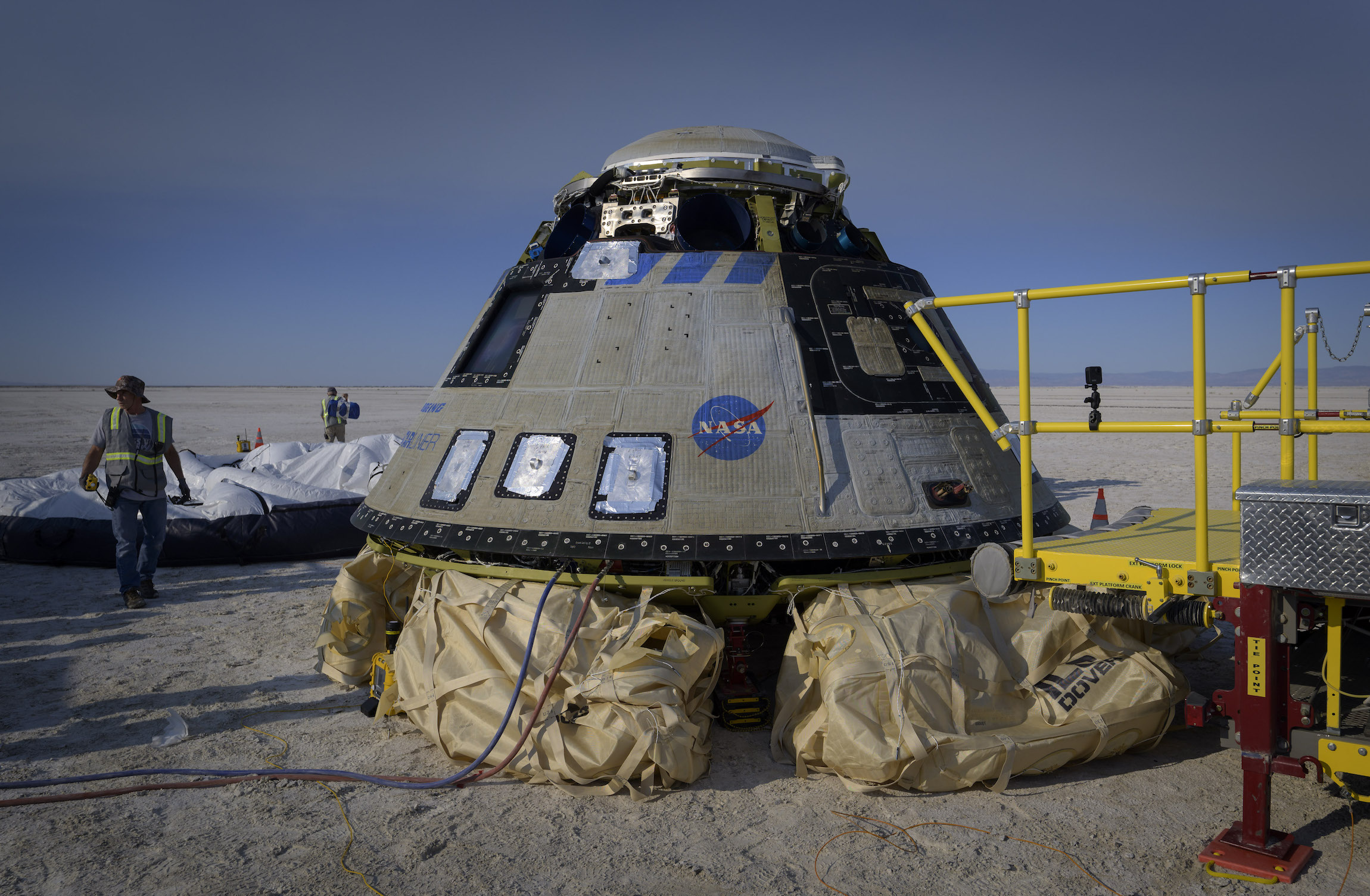The first crewed flight test of Boeing’s Starliner capsule is facing yet another delay, with NASA officials saying Wednesday that it was now targeting no earlier than July 21 for launch.
The space agency and Boeing blamed the delay on certification issues related to the capsule’s parachute system and other verifications on Starliner’s components and capabilities, as well as scheduling constraints with other missions scheduled to fly to and from the International Space Station (ISS).
Steve Stich, NASA’s program manager for the commercial crew program, told reporters that NASA and Boeing needs to complete an additional ground test on the parachute system, as well as a test of Starliner’s abort system. Stress testing of the flight and guidance, navigation and control systems and additional testing with crew are due to be complete by the end of this month.
“The Starliner spacecraft is in really good shape,” Stich told reporters during a media briefing Wednesday, adding that it’s “largely ready for flight.”
Some of the additional testing is a result from Boeing engineers discovering an error in one of Starliner’s components.
“We fixed that. That was pretty simple to go do with a with a minor mod to the vehicle,” Mark Nappi, Boeing’s Starliner program manager, said Wednesday. “However, we want to make sure that that same condition doesn’t exist anywhere else. So part of this testing is to validate that this was an isolated case.”
The CST-100 Starliner mission was scheduled to launch in April, but that was pushed back last week to May to accommodate the Axiom Space’s Ax-2 private spaceflight mission to the ISS.
This mission is a key part of the overall testing campaign for the Starliner spacecraft, which NASA wants to use to regularly ferry astronauts to and from the International Space Station (ISS). If all goes to plan, Boeing’s Starliner would join SpaceX’s Dragon capsule and Russia’s Soyuz as the only human-certified spacecraft capable of the task. Starliner’s first orbital test, an uncrewed mission, successfully docked with the ISS last May.

Boeing’s CST-100 Starliner spacecraft after it landed at White Sands Missile Range last May. Image Credit: NASA/Bill Ingalls via Getty Images
This upcoming crewed flight test will see Starliner carry two NASA astronauts, Barry Wilmore and Sunita Williams, to the ISS for at least an eight-day stint. While the spacecraft is docked with the station, the astronauts will perform additional vehicle check-outs. The mission is scheduled to launch on a United Launch Alliance Atlas V rocket from Cape Canaveral Space Force Base in Florida.
If the mission is a success, NASA plans to likely certify Starliner for ISS missions. It has been a long road for the capsule’s development, with the Starliner program facing myriad issues including a botched test mission in 2019 and numerous delays.
“We know that what we’re doing is extremely important, launching humans in space and providing NASA with the second provider,” Nappi said. “So we’ll take our time and we’ll make sure that everybody’s confident with the work that’s been done.”
NASA pushes back Boeing Starliner’s crewed flight test to July by Aria Alamalhodaei originally published on TechCrunch
source https://techcrunch.com/2023/03/29/nasa-pushes-back-boeing-starliners-crewed-flight-test-to-july/
Comments
Post a Comment